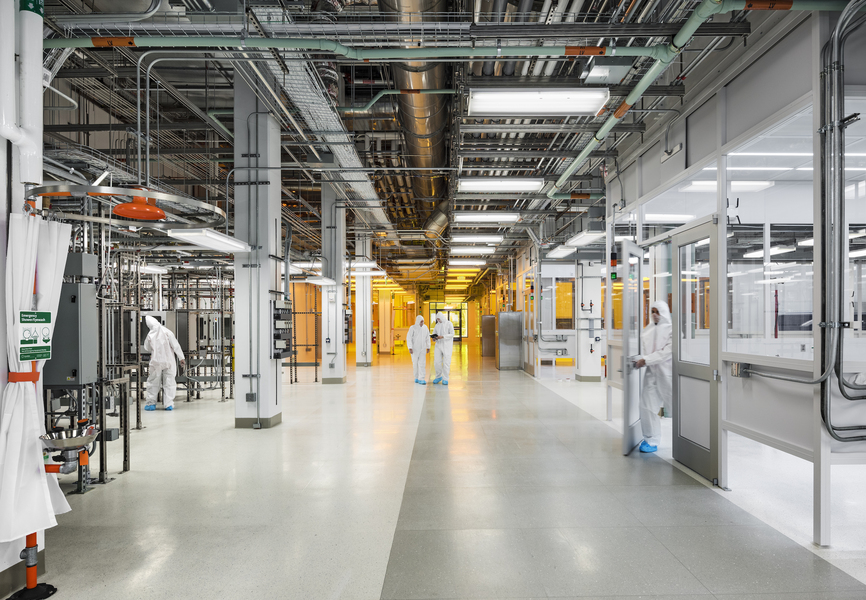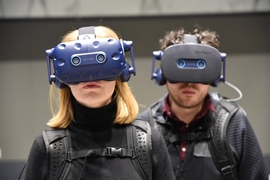MIT.nano has announced a new pilot program, START.nano, to support hard-tech ventures in their early stages. Seven companies with nanoscale technologies at the core of their business have been accepted to the program.
For 2021, the primary benefit for the START.nano participants will be discounted access to MIT.nano’s cleanrooms, characterization tools, and other laboratories. MIT.nano’s staff will use the pilot year to explore with the companies what programmatic support START.nano can incorporate to boost the success of hard-tech ventures.
“Hard-tech startups typically spend their first few years and first few million dollars just to create the facilities they need to develop their technology,” says Vladimir Bulović, faculty director of MIT.nano and the Fariborz Maseeh Professor of Emerging Technologies at MIT. “The premise of START.nano is that early access to MIT.nano’s state-of-the-art laboratories can minimize the cost of launching a nascent idea, helping increase the survival rate of promising companies and potentially shortening the time it takes for their innovations to reach the market.”
In addition to use of MIT.nano’s facilities, START.nano participants become a part of the MIT community, where they can work alongside talented researchers and receive support through the MIT innovation ecosystem. In return, MIT students, faculty, and industry partners may gain direct connections with hard-tech startups tackling tomorrow’s challenges.
The first START.nano cohort includes seven companies selected through a review process led by MIT.nano. Participants are selected for one year, with an option to apply for up to two more years of access. Here are the inaugural cohort companies:
Atantares is a development-stage startup in the field of precision medicine focused on improving disease management by fusing biochip and AI technologies.
Cambridge Electronics Inc. is developing the next generation of gallium nitride technology to advance the fields of power electronics and 5G communications.
Lydian Labs applies scalable additive manufacturing techniques to build thermally driven reactor systems that use high-efficiency electric heat as the main source of process energy to accelerate the decarbonization of the chemical industry.
Mesodyne is building a new kind of power generator — the Light Cell — to enable reliable efficient, silent, and portable power generation anywhere, anytime, and from any fuel for applications such as sensors in remote locations and robotic drones and vehicles.
NeuroNexus is a neurotechnology company that develops and commercializes neural interface technologies, instrumentation systems, and analytics and visualization software for neuroscience and clinical applications.
Phenomyx is combining microfabricated tools with standard automation systems to build consumables and platforms for behavioral observations of cell interactions. Combined with bead-based microenvironment probes, Phenomyx is using these platforms to aid in the discovery, development, and testing of cell-based therapies.
SiTration is developing ultra-durable filtration membranes that cut energy use in challenging industrial separations by combining the low cost, extreme durability, and filtration performance of various state-of-the-art commercial membrane solutions.
For more details, visit START.nano.








